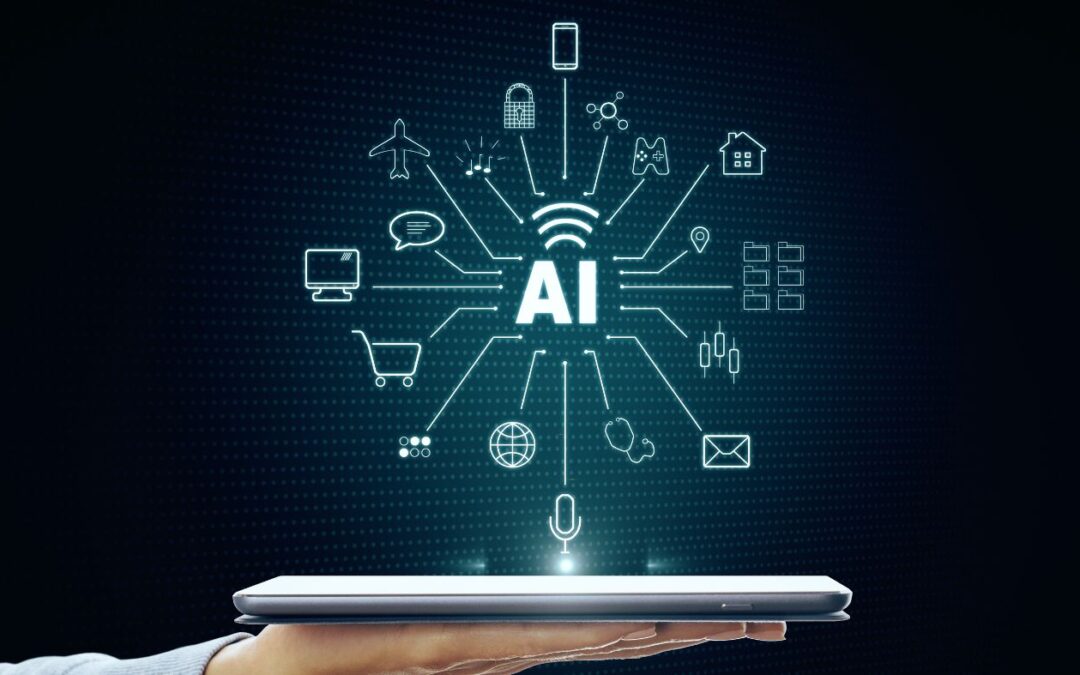In the ever-evolving landscape of digital marketing, Artificial Intelligence (AI) has emerged as a game-changer, reshaping strategies and unlocking unprecedented possibilities. This blog explores the multifaceted role of AI in digital marketing, delving into its applications, benefits, and the transformative impact it has on the way brands engage with their audience.
The AI Revolution in Digital Marketing:
AI is not just a buzzword; it’s a transformative force in the marketing domain. Its ability to analyse vast datasets, predict consumer behaviour, and automate complex tasks has revolutionised the way businesses approach digital marketing. From personalised customer experiences to data-driven insights, AI is the driving force behind the new era of marketing.
Personalization at Scale:
One of the most compelling aspects of AI in digital marketing is its capacity for hyper-personalization. Through machine learning algorithms, AI analyses user behaviour, preferences, and demographics to deliver tailor-made content and recommendations. This level of personalization enhances user engagement, builds brand loyalty, and significantly improves conversion rates.
Chatbots: The 24/7 Marketing Assistant:
Chatbots powered by AI have become invaluable tools for businesses in enhancing customer service and engagement. These virtual assistants are available round the clock to answer queries, provide information, and even facilitate transactions. The instantaneous and personalised nature of chatbot interactions not only improves customer satisfaction but also frees up human resources for more complex tasks.
Predictive Analytics: Anticipating Customer Needs:
AI-driven predictive analytics is a game-changer for marketers seeking to stay one step ahead of consumer needs. By analysing historical data, AI algorithms can accurately predict trends, enabling marketers to adjust their strategies in real-time. This foresight is instrumental in optimising campaigns, ensuring that marketing efforts align with evolving consumer preferences.
Programmatic Advertising: Precision in Ad Targeting:
AI plays a pivotal role in programmatic advertising, where ad placements are automated in real-time based on user behaviour and preferences. This level of precision ensures that ads are delivered to the right audience at the right time, maximising the impact of advertising campaigns. The result is a more efficient use of marketing budgets and improved return on investment (ROI).
Content Creation and Curation:
AI algorithms are becoming increasingly proficient in generating high-quality, relevant content. Whether it’s creating blog posts, social media updates, or product descriptions, AI can automate content creation, saving time and resources for marketers. Additionally, AI aids in content curation by analysing user interactions to recommend personalised content, fostering a more engaging user experience.
Voice Search Optimization: The Rise of Conversational AI:
With the surge in voice-activated devices, optimising for voice search has become paramount. AI-driven conversational agents understand and respond to natural language queries, allowing businesses to tailor their content to match the conversational tone of voice searches. This shift in SEO strategies reflects the growing influence of AI in adapting to changing user behaviour.
Emotional Intelligence in Marketing:
AI is evolving beyond analytical capabilities to incorporate emotional intelligence. Natural Language Processing (NLP) and sentiment analysis enable AI to understand and respond to human emotions expressed in online interactions. Brands can leverage this emotional intelligence to tailor their messaging, ensuring a more empathetic and resonant connection with their audience.
Fraud Detection and Cybersecurity:Role of
In the digital landscape, cybersecurity is a paramount concern. AI algorithms are instrumental in detecting and preventing fraudulent activities, protecting both businesses and consumers. By continuously learning from patterns and anomalies, AI systems can identify and mitigate potential threats in real-time, bolstering the security of digital marketing ecosystems.
The Human-AI Collaboration:
Contrary to the fear of job displacement, AI is not here to replace humans but to augment their capabilities. The most successful digital marketing strategies often involve a harmonious collaboration between human creativity and AI-driven efficiency. This synergy allows marketers to focus on strategy, creativity, and relationship-building, while AI handles the data-driven and repetitive tasks.
The Takeaway:
As we navigate the intricacies of the digital marketing landscape, it’s evident that AI is not just a tool; it’s the catalyst for a paradigm shift. The role of AI in digital marketing is continually expanding, offering marketers unprecedented opportunities to connect with their audience in meaningful ways. Embracing AI is no longer a choice but a strategic imperative for businesses aiming to thrive in the dynamic and competitive digital ecosystem. The future of digital marketing is here, and AI is leading the way.

